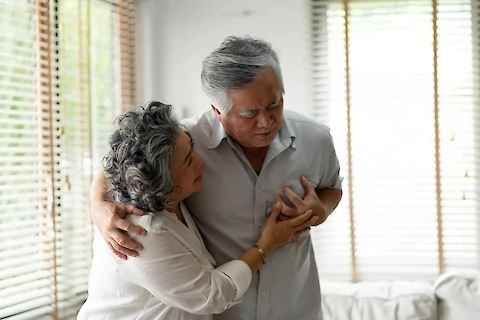
As a caregiver, it is important to be aware of the signs and symptoms of a heart attack to ensure that seniors get help quickly when they need it. In this blog from Senior Helpers of Nature Coast, we'll explore what constitutes a heart attack, examine some of the more unusual symptoms of this medical emergency, and provide guidance for caregivers to recognize the warning signs.
What Is a Heart Attack?
A heart attack occurs when a blood clot blocks the flow of oxygen-rich blood to part of your heart muscle. This can be life-threatening if not treated immediately.
The most common cause is atherosclerosis, which is a narrowing or blockage of arteries due to plaque buildup in them over time. Other possible causes include high blood pressure, diabetes, smoking, and certain medications.
Common symptoms associated with a heart attack can include chest pain or discomfort that may spread through the arm and shoulder, rapid heart rate, and cold sweat.
Unusual Symptoms of a Heart Attack
In addition to the more common signs of a heart attack, some people may experience less typical symptoms as well. These include pain or discomfort in the jaw and neck, shortness of breath that is unrelated to physical activity, extreme fatigue or a feeling like you have "run out of energy", lightheadedness or dizziness, and nausea and/or vomiting with no other known cause.
It is important to note that women may experience different symptoms than men when having a heart attack. Women are more likely to experience all of the other unusual signs we've outlined above, as well as back or abdominal pain in addition to chest pressure or discomfort.
While some people may only have one symptom during a heart attack, it is common for seniors (both male and female) to experience multiple symptoms in varying degrees of severity and intensity. This complicates matters further since it can be difficult for caregivers (or even seniors themselves) to recognize what they are experiencing and take action quickly enough.
When to Seek Help as a Caregiver
Caregivers need to act quickly if they recognize any signs of a heart attack in their seniors. Caregivers should dial 911, request immediate medical attention, follow the 911 dispatcher's instructions, and stay close to their seniors until paramedics arrive.
Senior Helpers Nature Coast Is Here to Support Your Elderly Loved One
By recognizing the unusual symptoms of a heart attack and understanding when to seek help as a caregiver, you're taking an important step in helping your senior get prompt medical attention when they need it. Reviewing the signs of this medical emergency with family members can also help caregivers recognize warning signs quickly before it's too late. For more tips on managing your senior's care, contact Senior Helpers Nature Coast. We serve seniors in Hernando/Citrus, Spring Hill, Brooksville, Weeki Wachee, Zephyrhills, Inverness, Hernando, Lecanto, Crystal River, and Homosassa.